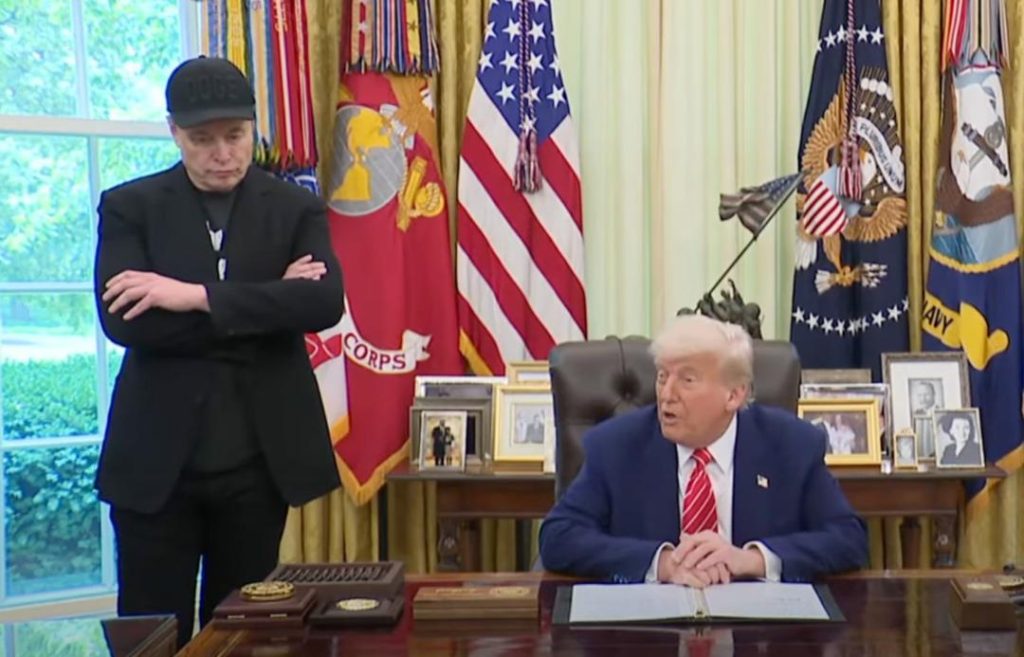
Musk Willingly Accepted Abuse & Lies Because He Loves US: Trump
In a recent press conference, US President Donald Trump bid farewell to Elon Musk, the head of DOGE, amidst a flurry of praise and admiration. Trump’s sentiments towards Musk were nothing short of glowing, as he described him as his friend and a man who has done a fantastic job.
What stood out, however, was Trump’s assertion that Musk willingly accepted “outrageous abuse, lies, and attacks” because of his love for the United States. The President went on to say that Americans owe Musk a “great debt of gratitude” for his unwavering dedication to the country.
This statement has sparked a mix of reactions, with some interpreting Trump’s words as a testament to Musk’s patriotism, while others have questioned the validity of such claims. As we delve into the matter, it’s essential to examine the context and implications of Trump’s remarks.
Musk, the CEO of SpaceX and Tesla, has been a vocal advocate for the United States, often using his platform to promote American interests and values. His ventures, particularly SpaceX, have received significant funding and support from the US government, making him a key player in the country’s technological and scientific development.
Trump’s praise for Musk is not unprecedented. The two have developed a rapport over the years, with Trump often expressing admiration for Musk’s innovative spirit and entrepreneurial prowess. However, Trump’s assertion that Musk accepted abuse and lies for his love of the US raises several questions.
What does Trump mean by “outrageous abuse, lies, and attacks”? Are these claims substantiated, or is it a mere exaggeration? What specific instances has Trump in mind, and why is he choosing to highlight Musk’s alleged willingness to endure such treatment?
It’s also important to consider the broader context in which Trump’s statement was made. As the President, Trump has been known for his polarizing rhetoric and divisive policies, which have often been met with criticism and condemnation from various quarters. Musk, too, has been the subject of controversy, particularly over his Twitter usage and perceived biases.
Given these factors, it’s possible to interpret Trump’s statement as a calculated move to curry favor with Musk, a prominent figure in the tech industry. By framing Musk as a patriot who has sacrificed his own interests for the sake of the US, Trump may be attempting to bolster his own credibility and legitimacy.
However, such a move could also be seen as an attempt to deflect attention from Trump’s own controversial actions and policies. By praising Musk and asserting his love for the US, Trump may be trying to shift the narrative away from his own perceived shortcomings and towards a more positive, patriotic agenda.
Ultimately, Trump’s statement raises more questions than it answers. What is the nature of the “outrageous abuse, lies, and attacks” Musk allegedly endured? How did Musk respond to these incidents, and what steps did he take to address them? What does Trump mean by “a great debt of gratitude,” and what concrete actions has he taken to demonstrate his appreciation for Musk’s efforts?
As we continue to grapple with the complexities of Trump’s statement, it’s essential to remain critical and nuanced in our analysis. While Musk’s commitment to the US is undeniable, we must also be aware of the potential motivations and biases that may be at play.
In conclusion, Trump’s assertion that Musk willingly accepted abuse and lies because he loves the US is a complex and multifaceted issue. While it’s possible to interpret this statement as a testament to Musk’s patriotism, it’s also important to consider the broader context and potential motivations behind Trump’s words.
As we move forward, it’s crucial that we engage in open and honest discussions about the role of patriotism and national identity in our society. By doing so, we can work towards a more inclusive and equitable future, where individuals are valued and respected for their contributions, regardless of their nationality or beliefs.
Source:
https://youtu.be/d8Jdace5FHQ



